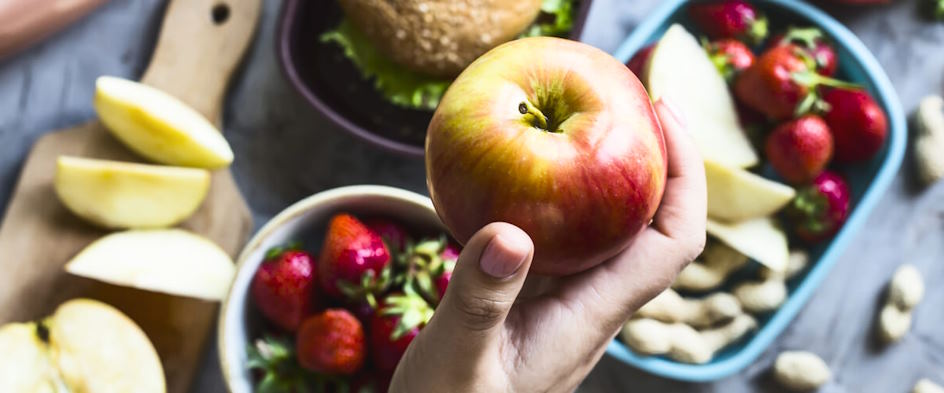Your skin is more than just a protective outer layer. It serves as a reflection of your inner health and well-being. Just as your diet influences your overall physical health, it also plays a significant role in the condition and appearance of your skin.

In what ways do healthy eating habits influence your skin?
Hydration and Skin Moisture
Water is crucial in maintaining skin moisture levels, preventing dryness, and supporting a supple complexion. When you’re well-hydrated, your skin appears plump and vibrant, and fine lines and wrinkles are less noticeable. In addition to drinking enough water, incorporating hydrating foods into your diet, such as watermelon, cucumbers, and citrus fruits, further boosts your skin’s moisture retention.
Antioxidants and Skin Protection
Antioxidants protect your skin against free radicals and harmful molecules from UV radiation and pollution. Vitamins C and E and other antioxidants found in foods like berries, dark leafy greens, and nuts act as a defense mechanism. They neutralize free radicals, reducing oxidative stress on your skin cells.

Omega-3 Fatty Acids and Skin Inflammation
Omega-3 fatty acids, predominantly found in fatty fish, flaxseeds, and walnuts, exhibit powerful anti-inflammatory properties. When consumed regularly, they can mitigate skin inflammation, helping to reduce redness, swelling, and acne breakouts. Omega-3s also contribute to maintaining the skin’s lipid barrier, which prevents moisture loss and reinforces your skin’s resilience.
Collagen Production and Skin Elasticity
Collagen is the structural protein responsible for the skin’s firmness and elasticity. Lean protein sources like poultry, fish, legumes, and tofu provide the amino acids necessary for collagen production. A diet rich in these proteins contributes to a more youthful appearance by helping your skin maintain its elasticity, reducing sagging, and preventing the development of fine lines and wrinkles.
The Role of Sugar in Skin Aging
Excessive sugar consumption can lead to the formation of advanced glycation end products (AGEs) in your skin. AGEs damage collagen and elastin fibers, causing them to become rigid and less functional. Over time, this process contributes to developing wrinkles and sagging skin. Reducing sugar intake helps preserve the integrity of your skin’s supportive structures, promoting a youthful appearance.
So, adopting healthy eating habits that prioritize hydrating foods, antioxidants, omega-3 fatty acids, and lean proteins can promote skin condition.



